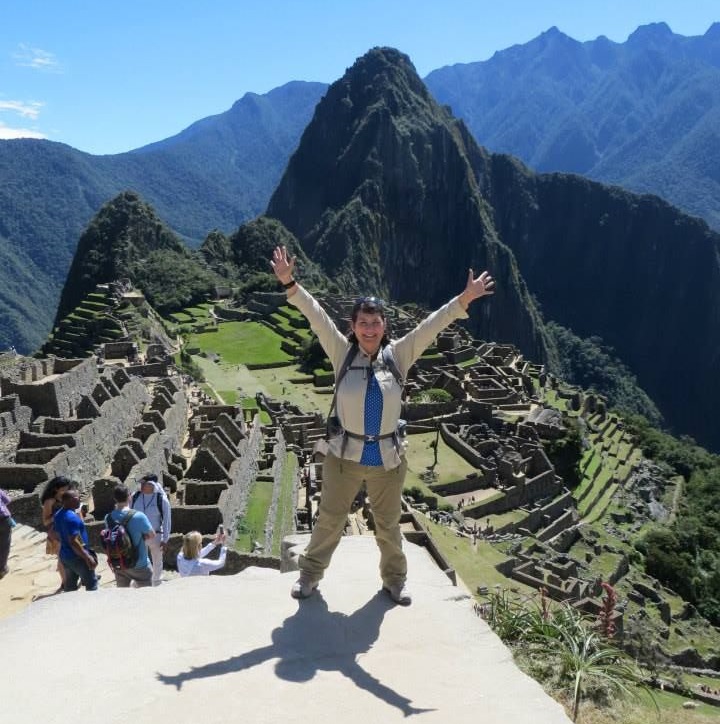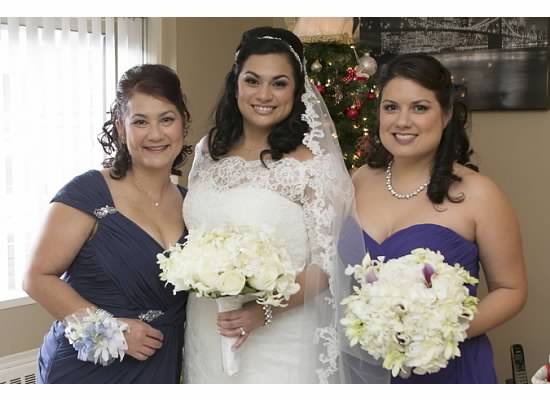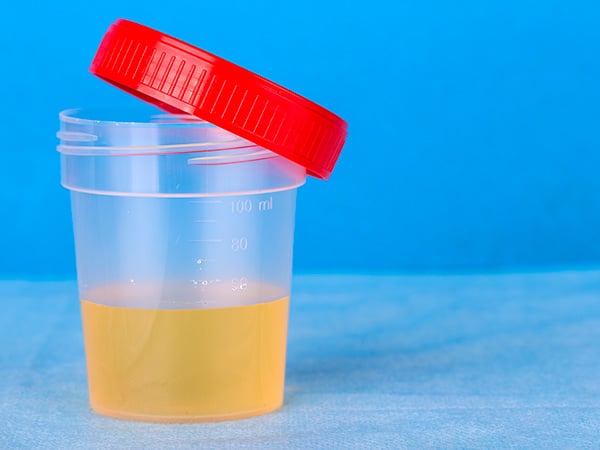Annie Ellis
She had symptoms for nine months and never thought it could be cancer. This ovarian cancer survivor, now in remission, takes an active role in making treatment decisions.
On the morning of my birthday in late 2003, I looked into the mirror and thought to myself, “Damn, forty looks good on me!” Six months later on July 1, 2004, I woke up from surgery and found out I had ovarian cancer.

I had symptoms for nine months and never thought that it could be cancer. I had no risk factors – I am half Filipina and half Puerto Rican, and there is very little cancer in my very large extended family. The first four years were pretty rough with two recurrences, three major surgeries, five chemotherapy regimens and a remission vaccine clinical trial. I am currently enjoying an unexpected very long third remission.
The most difficult time for me was during second recurrence when a standard drug failed after a partial response. I was devastated because the cancer was now in my liver and remissions seemed to be getting shorter.
Through local and national ovarian cancer survivor organizations, I was able to meet many long-term survivors, some managing chronic disease long-term and continuing to laugh, travel and LIVE every day to the fullest. These survivors gave me hope and became my heroes. They showed me that everyone responds differently and there are no “one-size-fits-all” answers regarding treatment, diet, lifestyle, and coping. I realized that I could find a way to cope, learn to live with uncertainty, and even manage chronic disease if it comes to that.
During this time, my medical team was not in agreement on what the next steps should be, and it was up to me to choose between several treatment options. Many recurrent ovarian cancer survivors participate in shared treatment decision-making. At first I wasn’t comfortable because I didn’t feel qualified or understand my options.

My doctors spent a lot of time explaining things to me, and survivor groups pointed me to trusted resources. Now I feel empowered, because I have access to information that I need to participate in making treatment decisions with my medical team.
I also learned about the strategy of using clinical trials to expand treatment options by having access to promising therapies not yet widely available. If a clinical trial drug does not work, standard therapies are still available and people who have had less chemo can qualify for more trials. After two second opinions and several weeks of exploring my options, a treatment plan was implemented and another remission was achieved in 2007.
I feel lucky that this third remission has lasted longer than anyone expected. Many doctors and nurses have worked really hard to get me to this point and I honor their hard work by enjoying my life and living as fully as possible. I’m back at work full-time, got to travel to Greece and Machu Picchu, and got to dance at both my daughters’ weddings. I have had amazing opportunities to serve the ovarian cancer community as a research advocate, including participating in AACR’s Scientist↔ Survivor Program.
High-grade serous ovarian cancer is a very tricky disease and everyone’s cancer is different. We don’t lack dedicated, caring professionals who are working hard to make a difference. We lack information – information that can be revealed through clinical trials. This is an extraordinary time in cancer research as exciting advances in technology bring us closer to molecular-based personalized medicine. With enough funding, in the future ovarian cancer survivors will no longer have to rely on luck for a good outcome.



